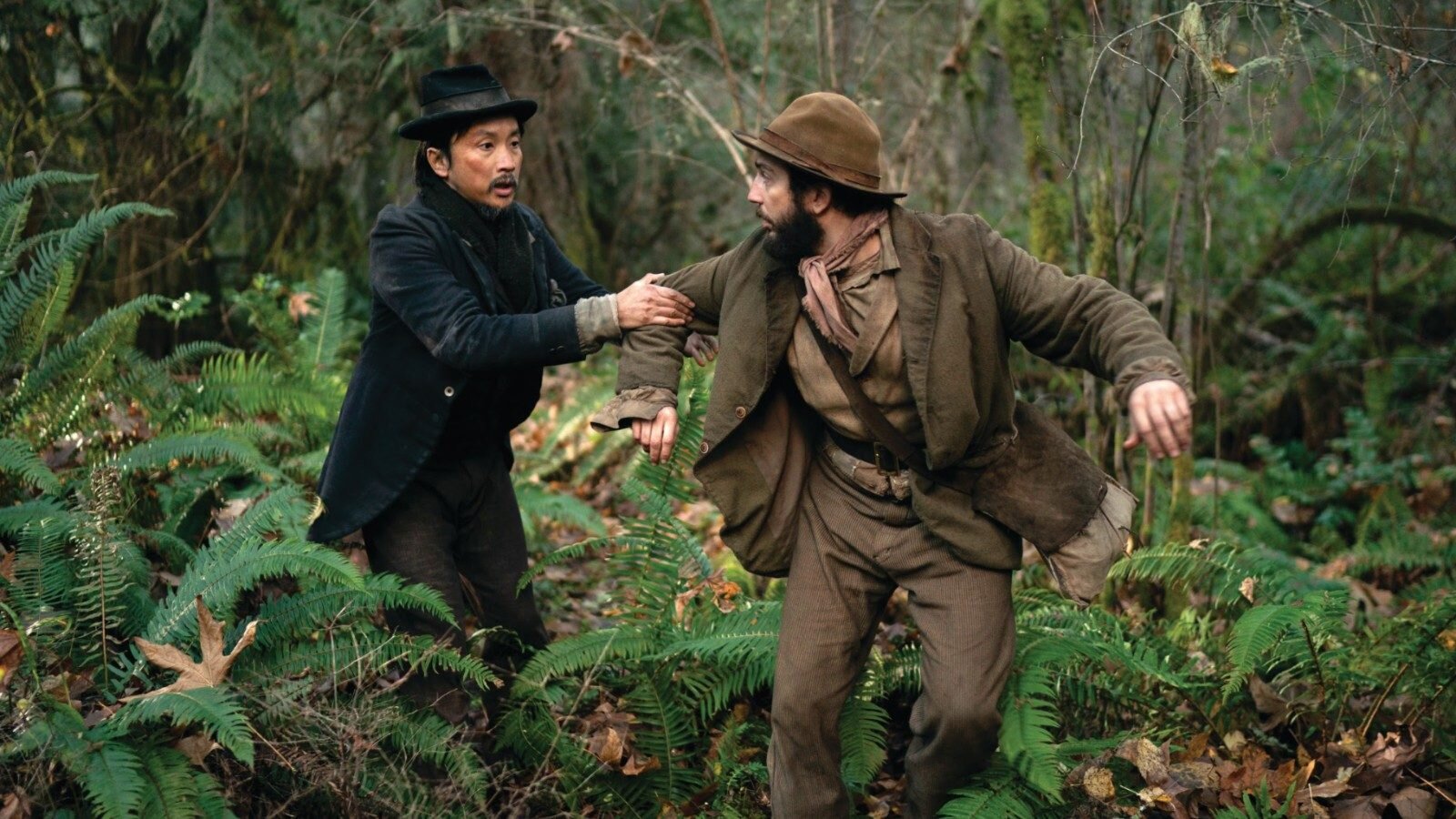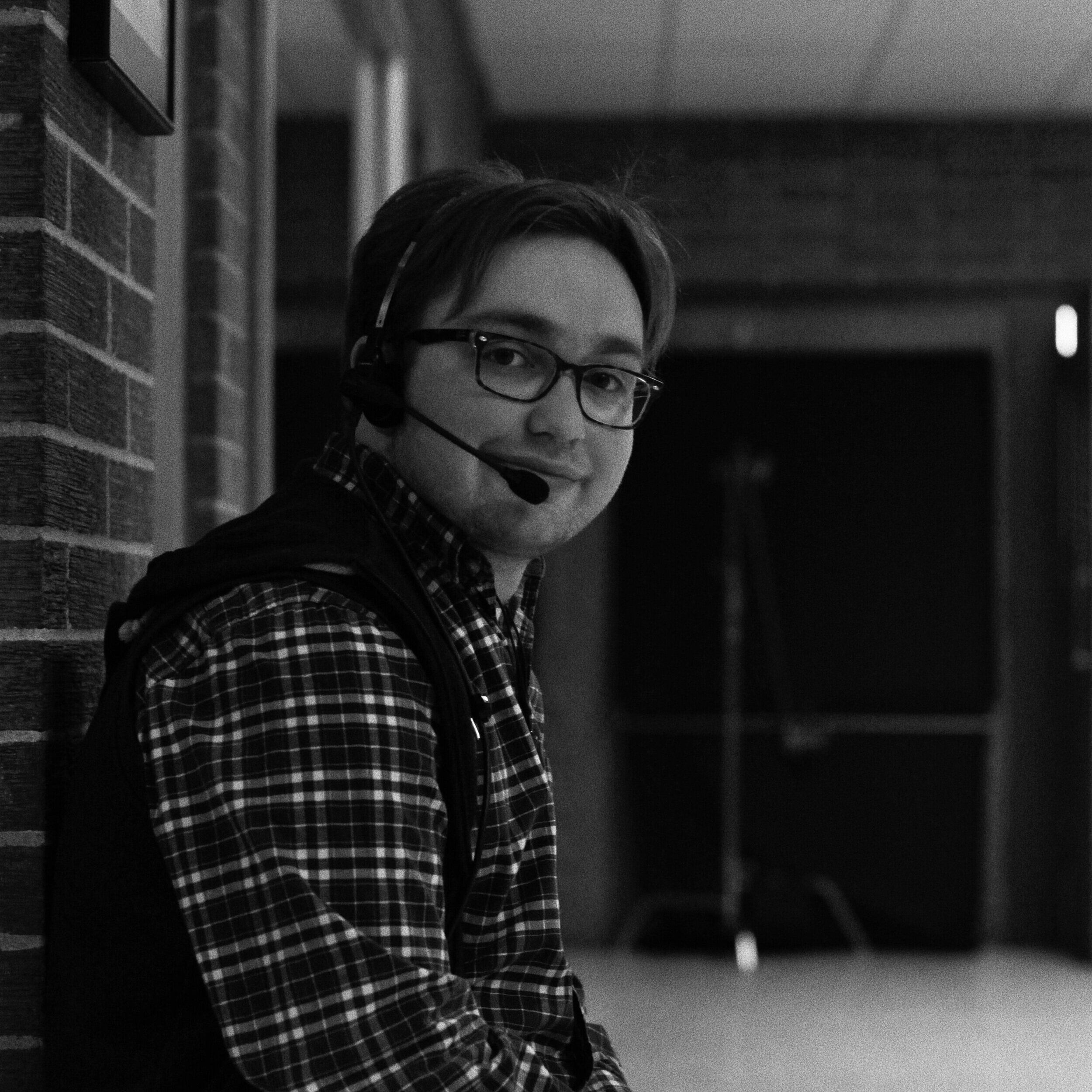First Cow (2020): Hope for a New Beginning
By Nick Sansone
When looking at filmmakers whose films embody the experience of life in the American West in the 21st century, the top two seem to be Chloé Zhao and Kelly Reichardt. Both filmmakers do stunningly delicate work in capturing everything from the landscape to the poverty to the toxic masculinity prevalent in this part of the country—much in the same way that the Italian neorealist filmmakers captured life in their home country—but Reichardt, in particular, has directed a number of compelling Western-set dramas over the last several years. My first time watching one of her films, Certain Women (2016), was for research for a paper I was writing, and I was immediately struck by how she can create such tension and cast such a spell over the viewer despite the inherently quiet nature of her storytelling. Not once did I ever lose interest in the story or characters despite the fact that there are almost no conventional means of “hooking” the viewer via score, cinematography, or sound design.
Needless to say, I was extremely excited to see whatever Reichardt did next, and she absolutely exceeded even my highest expectations with First Cow (2020), a phenomenal achievement that should cement her status as one of America’s finest cinematic storytellers. More along the lines of her second feature Old Joy (2006) than her other films from the last decade, First Cow is a compelling, funny, intense, and deeply moving portrait of alienation, greed, and the power of friendship to provide hope and protection in an unforgiving landscape. With two of the best and most understated performances of last year carrying this film and wonderfully subtle writing and direction by Reichardt, this is a film that will stand the test of time and deserves to be remembered as a classic of American independent cinema.
Although set in the Oregon Country in the 1820s, this film actually opens in present-day Oregon (as shown in the film’s first shot of a cargo ship passing), where a woman (Alia Shawkat) is roaming about a wooded area with her dog, scavenging for items in nature when she happens upon two skeletons lying side-by-side in the dirt. While this opening may seem random (or even a spoiler alert) to some, this is actually a brilliant meta touch by Kelly Reichardt, a woman who regularly exhumes bodies buried long ago in her films in order to find the stories behind them. She did this in her first period piece, the Oregon Trail story Meek’s Cutoff (2011), and she’s doing it again here. The contemplative, inquisitive way this character (and by association, Reichardt) uncovers these bodies also sets the tone for the way Reichardt unveils and then studies her two main characters, which begins with a beautifully subtle time jump that cuts from the skeletons in the present day to the foot of one of our main characters in the 1820s.
The characters in question are frontiersmen named Cookie (John Magaro) and King-Lu (Orion Lee), who are both very much outsiders in the Oregon Country. Cookie is a Jewish cook who does his best to provide food for a group of fur trappers in a land where food is scarce (which the fur trappers do not realize, and they accuse Cookie of laziness for not producing exactly what they would like), while King-Lu is a Chinese immigrant who is wanted for a murder he committed to save a friend’s life. One night, the two cross paths while Cookie is scavenging and King-Lu is running through the woods naked, and they form a delicate bond despite King-Lu’s decision to run off the next morning. However, upon a chance reunion later at a makeshift tavern, Cookie and King-Lu quickly become close friends and protectors for each other, sharing their hopes and dreams and ultimately concocting a plan to make some money and build a new life for themselves together.
This plan involves making and selling baked goods using the milk from the prize-winning cow (the first of its kind in Oregon Country) of a rich Englishman living in the settlement (Toby Jones). But what starts as a fine one-off plan to get milk ends up becoming a dangerous heist that puts both of these men in grave danger, as their baked goods become so popular that their success leads to greed, which inevitably leads to disaster. And this disaster results in one of the most unexpectedly intense third-act sequences I’ve seen in some time. However, unlike many heist thrillers that rely on shallow suspense to hook viewers, Reichardt relies solely on the viewer’s connection to these two men to drive the suspense in this final sequence, and it pays off beautifully, as their relationship is perhaps the most endearing on-screen friendship in any film last year.
There are many layers in Cookie and King-Lu’s friendship that makes it so endearing and absolutely the heart and soul of the film, starting with the fact that it is relatable from the very beginning. Along with their shared status as minorities and outsiders (both of which are extremely significant), Cookie and King-Lu are both men who desire meaningful human connection and are motivated by the pursuit of a better life, which is something that should be extremely relatable to any human. And while their actions in stealing this milk for profit are ethically problematic, we nevertheless take their side and are with these two men 100 percent. A lot of this has to do with the performances from John Magaro and Orion Lee, who each bring a large amount of empathy and grace to their respective characters, which only makes them more endearing and lovable. Magaro’s performance in particular is quietly powerful, especially as the film inches toward its third-act climax and the wide-eyed excitement of his profitable venture quickly transforms into fear for his life.
And, in classic Reichardt fashion, she allows for plenty of affecting moments of silence between the two men, especially early on when they’re naturally guarded and awkward with each other. One particularly beautiful scene comes when Cookie first follows King-Lu to the shack where he is staying. After showing Cookie into the shack, King-Lu leaves to go out front where he begins chopping wood. Clearly affected by the image of King-Lu acting like a normal frontiersman despite him being a Chinese immigrant wanted for murder, Cookie begins sweeping the entryway to King-Lu’s shack and brushes off his front rug, helping him without being asked. Despite them not speaking and not even being in the same physical space, there instantly is an unspoken bond between them, a foundation for the partnership they will later build, one that is founded on an inherent sense of duty and support for one another and the equality of neither man being dominant over the other.
And it is the inherent sense of duty and support for one another that carries this film through its third-act climax, where a lesser film could have easily fallen apart due to either poor pacing or lack of investment in the characters. First Cow reaches a level that comes close to matching the second half of Parasite (2019) in terms of pure emotion and suspense achieved. With absolutely no score, stylized editing, or extensive handheld camera, Reichardt crafts an extended sequence that is more nail-bitingly suspenseful and unbearable than most mainstream Hollywood thrillers. While much of this is due to the intense connection between the viewer and Cookie and King-Lu, it is also because of the sense of dread that hangs over the entire film thanks to the opening present-day sequence with the skeletons. And this potent combination of two fantastic characters and unavoidable dramatic irony in a truly powerful third-act climax will not be soon forgotten by those who view it.
Quietly filling the canvas painted by Reichardt and her two lead actors is the beautiful cinematography by frequent Reichardt collaborator Christopher Blauvelt. His masterly decision to film in 4:3 aspect ratio helps keep the focus squarely on Cookie and King-Lu’s friendship, and the film’s cool, earthy color palette of blues, greens, and browns reflects their unforgiving landscape. In addition, the understated, woodsy score by William Tyler, which only comes in at select moments, feels as if it were meant to exist only in this place and time, with these characters. And while the film is unquestionably a two-man show, the supporting performances do make in impact in their brief screen-time, particularly Toby Jones as the Chief Factor, the always-welcome Lily Gladstone (from Reichardt’s Certain Women (2016)) as his Native American wife, and Alia Shawkat as the stand-in for Reichardt herself in the opening scene. Even the cow at the center of the film is perfectly cast, with a unique look and aura that draws attention to itself as it goes from being a holy grail to being the main source of danger for Cookie and King-Lu.
Much like some of my other favorite films of 2020, such as Sound of Metal (2020) and House of Hummingbird (2020), First Cow (2020) is an astounding testament to the power of empathy in filmmaking and acting to make simple character studies powerful and unforgettable cinematic experiences, and this is certainly one of the most powerful and unforgettable ones of the last several years. And while its slow, quiet, contemplative nature may be a turn-off for some, those who are willing to be patient and actively engage with this film (which is currently streaming on Showtime and available to rent on several platforms) will find a truly special piece of American Western cinema, one that shows how the power of friendship can lead to a new beginning regardless of outside forces. And as we slowly begin to transition from a long, cold COVID winter into the promises of a new springtime, perhaps this film can help provide some hope for this new beginning.
Nick Sansone is a writer and aspiring filmmaker from Chicago. A recent summa cum laude graduate of DePaul University’s School of Cinematic Arts, he continues to study film independently and has appeared on different radio programs in the Chicagoland area to discuss contemporary cinema and the Academy Awards.







